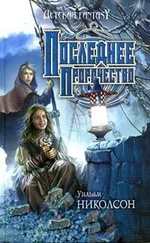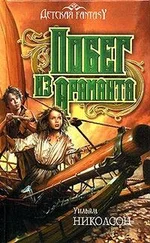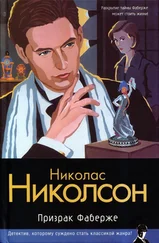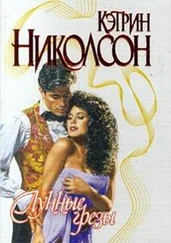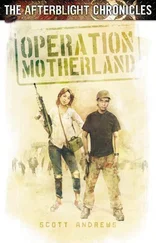So he turns into Kensington Church Street and climbs the rise to Campden Grove. His father will be in his office now, of course, on the other side of town; but Larry has a key. He lets himself in, heaving the old bike after him, and stands it in the front hall. Miss Cookham, the housekeeper, comes up from the basement to see who it can be.
‘Hello, Cookie,’ says Larry. ‘I thought I’d look in.’
‘Mr Lawrence!’ She actually goes pink with delight. ‘There’s a sight for sore eyes! Look at you! I hear you’re a famous artist now.’
‘Not so famous,’ says Larry.
He’s shocked at how much it pleases him to be welcomed in this way; and at how comforted he is by the gloomy house.
‘Shall I get you a pot of tea, and maybe a slice of cake?’
‘That would be wonderful. How are you, Cookie?’
‘Quiet, as you might say. Your father won’t be long now.’
Larry settles himself down in the third-floor back room that was once the nursery, and then became his study room. Here, home from school in the holidays, he would retreat to read or sketch or just gaze into the fire. Here he hid himself on the day his father told him his mother had gone to heaven. He was five years old.
Cookie knocks on the door, and comes in with a tray.
‘It’s only seed cake,’ she says, ‘and plainer than I’d like it, but you know how it is. You’d never guess we won the war.’
‘Thank you, Cookie. You’re an angel.’
She stands there, looking at him in his old armchair by the bookcase.
‘It’s a pleasure to have you home again, Mr Lawrence.’
Left alone, Larry drinks his tea and eats his cake and finds he can’t persuade himself to address his situation. Each time he sets out to discover what he should do, his thoughts veer away to one side, and he finds himself remembering his schooldays. Ed Avenell, whose family lived in the north, would always stay with him here at the beginning and end of the holidays, as he travelled back and forth to school. He can see him now, hunched up on the floor in front of the fire, poking things into the coals, watching them burn. Ed was a great one for burning things, pencils, toy soldiers, matchboxes. He burned himself too, in an experimental sort of way, passing his hand through the flames until it was coated with soot.
He hears the shudder of the front door closing, and hears his father’s voice in the hall. He hears Cookie’s excited twitter. His father will be tired. He’ll want to wash and change after his day in the office; and then to enjoy a whisky in the library while he glances over the evening paper.
Larry comes downstairs to greet him. He hasn’t seen his father since his return from Jamaica.
‘Larry! This is a happy surprise!’
His eyes show his real pleasure. As always on coming home, Larry is struck by how much he’s still part of this world, which in his own mind he has left behind.
‘Will you stay and eat with me?’
‘I’d like a drink,’ says Larry. ‘And a chat. But then I’d better be back on my bike.’
‘Ah, the artist’s life!’ says his father, smiling. ‘Give me ten minutes.’
Larry goes into the library and picks up the evening paper his father has brought in. He reads a little about the Paris peace conference, then puts the paper down. This room is so filled with his father’s presence that he feels like a child again. Here, every evening in the long school holidays, he sat in what was always his special chair, a low tub chair upholstered in deep red velvet, and his father read to him. They read King Solomon’s Mines , and The Lost World , and Treasure Island , which his father was fond of saying was the best tale ever spun.
And am I to be a father too?
William Cornford joins him and pours them both a shot of Scotch. They talk for a little about Jamaica, and the difficulties caused by the requisition of the fleet during the war.
‘We’ve got the Ariguani and the Bayano back, but for now only the Ariguani is operating a regular schedule. We’re badly short of capacity. I’m in negotiations to buy four ships from the Ministry. This government is doing all it can to increase nondollar food imports. It’s just going to take time. The great thing is we’ve managed to hold onto almost all our staff.’
‘As far as I can see,’ says Larry, ‘no one ever leaves.’
‘Not if I can help it,’ says his father. ‘People grow into jobs. They start off as little slips and they turn into oak trees.’
Larry knows he too should have been a little slip, should now be an oak tree in the family firm. His father, realising his words may be construed as a criticism, turns the conversation.
‘So tell me,’ he says, ‘how is your art exhibition going?’
‘Only two more days to go,’ says Larry. ‘Then I can have the dubious pleasure of reclaiming my works.’
‘And what then?’
‘That’s something of a question.’
‘Oh?’ The single syllable spoken quietly, neutrally.
‘There’s been a new development. I’m not quite sure what to do.’
Until this moment Larry hasn’t realised he wants his father’s advice. He believes he knows what his father will say: his strong religious convictions give him very little choice. So why raise the matter?
Because whatever I do, Dad must approve.
This too is a surprise. Apparently, in order to feel that he has done the right thing he must obtain his father’s blessing. This weary man sitting drinking Scotch, with his lined tanned face gazing so thoughtfully back at him, represents all that is just and right and good. This is what it is to be a father.
How can I ever live up to that?
‘I’ve had a girlfriend for quite some time now,’ he says. ‘Her name’s Nell. She works for an art dealer. She’s a very unconventional sort of girl, very free-thinking, very independent.’
He pauses, and wonders whether his father can tell where this is going. As he speaks, he loses confidence. It seems to him that what he is about to say shows him to have been ridiculously irresponsible.
Why did I take no precautions to prevent this happening? Because Nell told me she had dealt with it. But I never asked more. I have no idea what method she used. I was too embarrassed, and too selfish, to pursue the question. Look at it rationally, as my father must look at it: my behaviour has been a kind of insanity.
‘Anyway,’ he says, ‘I’ve run into a spot of difficulty with her. I expect you can guess.’
He finds he can’t speak the actual words. He’s too ashamed. And yet here he is, by his own choice, telling his father enough for him to draw his own conclusions.
‘I see,’ says his father.
‘I know what I’ve done is wrong,’ Larry says. ‘I mean, I know you’ll tell me the Church will say I’ve sinned. And I have.’
‘Do you love her?’ his father says.
This is not what Larry has been braced for. He takes a moment before he answers.
‘Yes,’ he says.
‘Do you want to marry her?’
‘I think so,’ says Larry. ‘It’s all so new. I’m confused about it all.’
‘How old is she?’
‘Twenty. Nearly twenty-one.’
‘What have you told her?’
‘Nothing. She gave me the news and then ran off. I think she wants me to have time to think about it before I make any decision. She’s not the kind of girl who’d want me to marry her just for the sake of appearances.’
‘She’d want to know you loved her?’
‘Yes.’
‘And you’re not sure.’
He throws his father a quick glance. Is it so obvious?
‘I don’t know. I might be. I’m not sure I’m not sure, if you see what I mean.’
William Cornford nods. Yes, he sees what Larry means. He’s watching his son closely.
Читать дальше

